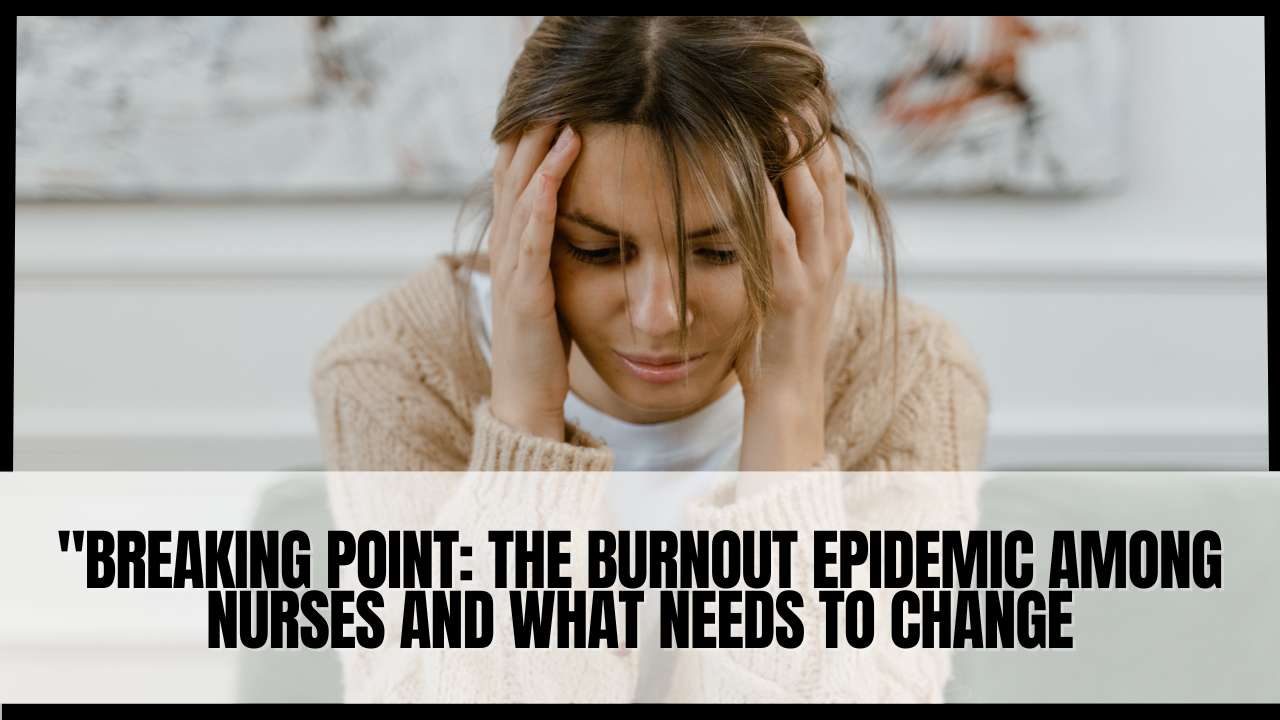Have you ever wondered what causes nurse burnout and how it affects patient care?
Burnout in nursing is a major issue in healthcare today. The pressure of long hours, emotional stress, and high patient loads can lead to physical and mental exhaustion. This blog will explore the nurse burnout epidemic, its impact, and ways to manage and prevent it.
What is Nurse Burnout?
Nurse burnout happens when nurses feel overwhelmed and unable to cope with the stress of their job. It often includes feelings of exhaustion, frustration, and a lack of satisfaction with their work. Burnout can affect any nurse, from those just starting to experienced professionals.
Causes of Nurse Burnout:
- Long Working Hours: Nurses often work long shifts, sometimes up to 12 hours or more. This can lead to physical exhaustion and less time for rest and recovery.
- High Patient Loads: Handling many patients at once can be overwhelming. Nurses may feel they can’t give each patient the attention they deserve.
- Emotional Stress: Dealing with sick or dying patients can be emotionally draining. Nurses often form bonds with their patients, and seeing them suffer can take a toll.
- Lack of Support: Without proper support from management and colleagues, nurses can feel isolated and unsupported.
Effects of Nurse Burnout:
- On Nurses: Burnout can lead to physical health problems like headaches, sleep disorders, and a weakened immune system. It also affects mental health, causing anxiety, depression, and a feeling of hopelessness.
- On Patients: When nurses are burned out, the quality of patient care can decline. Nurses may become less attentive, make more errors, and have less patience. This can lead to worse outcomes for patients.
Recognizing the Signs:
It is crucial to recognize the signs of burnout early. Some common signs include:
- Feeling tired all the time
- Feeling detached or indifferent towards patients
- Decreased job performance
- Increased irritability
- Frequent headaches or stomach problems
Strategies to Prevent and Manage Burnout:
- Self-Care: Nurses should prioritize their health by eating well, getting enough sleep, and exercising regularly. Taking breaks and time off when needed is also essential.
- Support Systems: Building a strong support system at work can make a big difference. Nurses should seek support from colleagues, mentors, and supervisors. Open communication about the challenges faced can foster a more supportive work environment.
- Professional Help: Seeking help from a mental health professional can provide coping strategies and support. Therapy or counseling can be beneficial in managing stress and preventing burnout.
- Work-Life Balance: Maintaining a healthy work-life balance is crucial. Nurses should ensure they have time for hobbies, family, and relaxation outside of work.
- Mindfulness and Relaxation Techniques: Practices like meditation, deep breathing exercises, and yoga can help manage stress and improve mental well-being.
- Education and Training: Continuing education and training can help nurses feel more confident and competent in their roles. Learning new skills and staying updated on best practices can reduce stress and improve job satisfaction.
Creating a Supportive Work Environment:
Healthcare organizations play a significant role in preventing nurse burnout. They can:
- Ensure manageable nurse-to-patient ratios
- Provide adequate resources and support
- Foster a positive work culture
- Offer programs for stress management and mental health support
The nurse burnout epidemic is a serious issue that affects both nurses and patients. By understanding the causes, recognizing the signs, and implementing strategies for prevention and management, we can create a healthier work environment for nurses.
Taking care of nurses is essential for ensuring high-quality patient care. For more insights and tips on managing stress in nursing, check out our next article, “Coping with Patient Loss: Essential Strategies for Nurses.”


Good day! I just want to give you a big thumbs up for your excellent information you have here on this post. I am coming back to your web site for more soon.